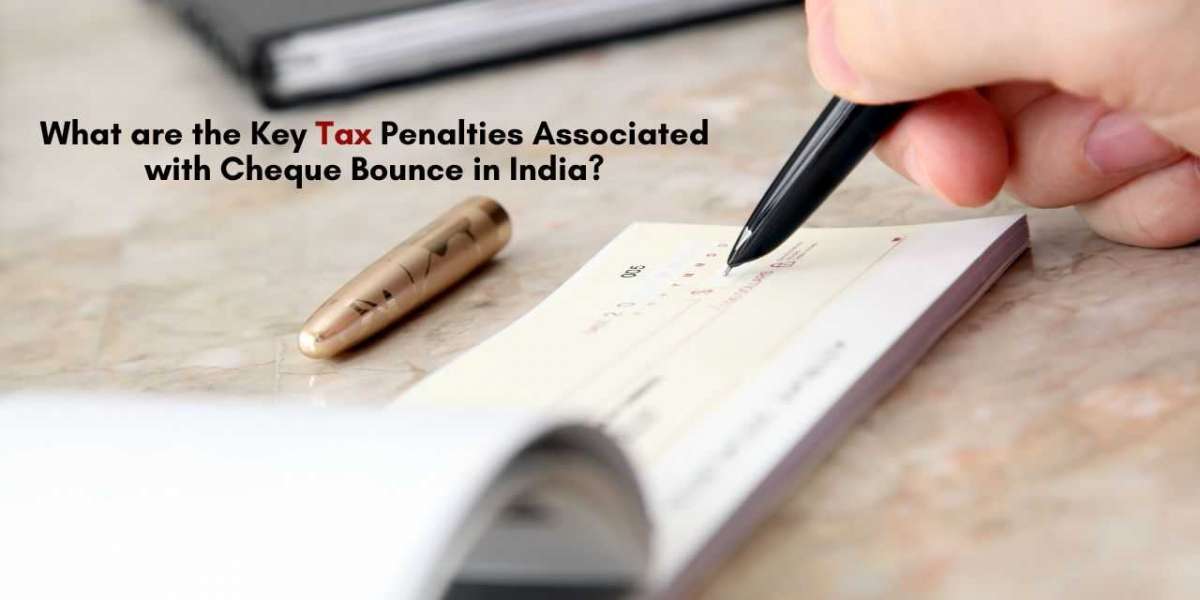Introduction
A cheque bounce is a significant issue in India that carries financial, legal, and reputational consequences. This occurrence, often resulting from insufficient funds or signature mismatches, has legal ramifications under the Negotiable Instruments Act, of 1881. Beyond the financial liabilities, cheque bounce cases can also lead to tax penalties. Let’s delve into these penalties and related legal aspects.
Understanding Cheque Bounce and Its Legal Implications
When a cheque is dishonored, the payee has the right to issue a cheque bounce notice to the drawer, demanding repayment of the owed amount within a specified period. This cheque bounce notice period is crucial for initiating further legal action if the amount remains unpaid. Under Section 138 of the Negotiable Instruments Act, failing to address a dishonored cheque within this period can lead to criminal proceedings.
The penalties include fines that can be up to twice the cheque amount and imprisonment for up to two years. These legal repercussions also extend to tax implications, which can add another layer of financial strain.
Tax Penalties Linked to Cheque Bounce
The dishonor of a cheque can trigger several tax-related penalties:
- Interest on Tax Due: If the bounced cheque was meant for tax payment, the taxpayer may be liable for interest under the Income Tax Act. The interest rate is typically 1% per month for delayed tax payments.
- Late Payment Fees: Missing tax payment deadlines due to a cheque bounce attracts penalties under various tax laws. The exact amount depends on the applicable tax category and the duration of delay.
- Revocation of Benefits: A bounced cheque can result in the loss of benefits like exemptions or deductions if they are tied to timely payments.
These penalties underscore the importance of maintaining adequate funds and ensuring accuracy when issuing cheques.
Legal Notices and Their Role in Cheque Bounce Cases
A legal notice is a formal document that serves as an official communication between two parties. In the context of cheque bounce cases, it is a mandatory step before filing a lawsuit.
The payee must issue a legal notice to the drawer within 30 days of receiving the bank memo indicating the cheque's dishonor. This notice allows the drawer to rectify the situation by making the payment within 15 days. Failure to comply with the notice terms allows the payee to file a complaint in court.
The process of issuing a legal notice is integral to ensuring justice and compliance. There are also types of legal notice that apply to various situations, including:
- Cheque Bounce Notice: Specific to dishonored cheques.
- Legal Notice for Non Payment of Salary: Used by employees against employers for unpaid wages.
Cheque Bounce Cases and Employer Responsibilities
Cheque bounce incidents are not limited to business transactions. Employers can also face legal and tax penalties for issuing dishonored salary cheques.
An employee facing a non payment of salary by employer due to a bounced cheque can issue a legal notice for non payment of salary. This notice ensures that the employer is held accountable for their financial obligations. Employers who fail to address such notices can face:
- Loss of credibility and trust among employees.
- Legal suits that may result in additional fines and compensation.
- Tax scrutiny for non-compliance with payroll obligations.
Filing a Complaint After a Cheque Bounce
If the drawer does not comply with the terms of a cheque bounce notice, the payee can proceed with legal action. Filing a complaint involves submitting evidence, such as:
- The original dishonored cheque.
- The bank memo.
- A copy of the legal notice and proof of its delivery.
The court examines these documents to determine the case's validity. If found guilty, the drawer may face imprisonment, fines, and tax liabilities.
Preventing Cheque Bounce and Associated Penalties
To avoid the financial and legal ramifications of cheque bounce incidents, individuals and businesses should consider the following:
- Maintain Adequate Funds: Ensure sufficient balance in your account before issuing a cheque.
- Verify Cheque Details: Double-check the signature and details to avoid discrepancies.
- Communicate Clearly: Notify payees if there are potential payment delays and seek alternatives to avoid dishonor.
- Understand Legal Obligations: Familiarize yourself with the laws surrounding cheque bounce cases and tax liabilities.
Conclusion
Cheque bounce cases are not just about the dishonored amount but also involve legal and tax consequences that can significantly impact individuals and businesses. Understanding the penalties, addressing legal notices promptly, and taking preventive measures can help mitigate these risks. Whether it’s a cheque bounce notice, a legal notice for non payment of salary, or other forms of legal communication, ensuring compliance and financial discipline is key to avoiding unnecessary complications.







